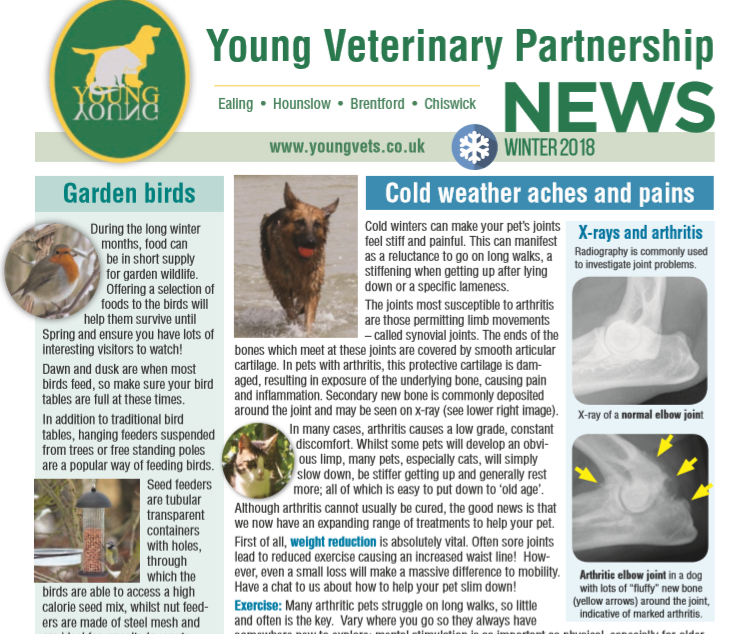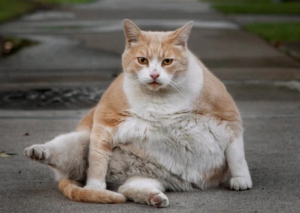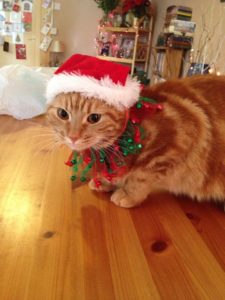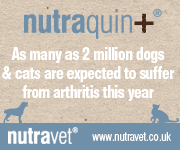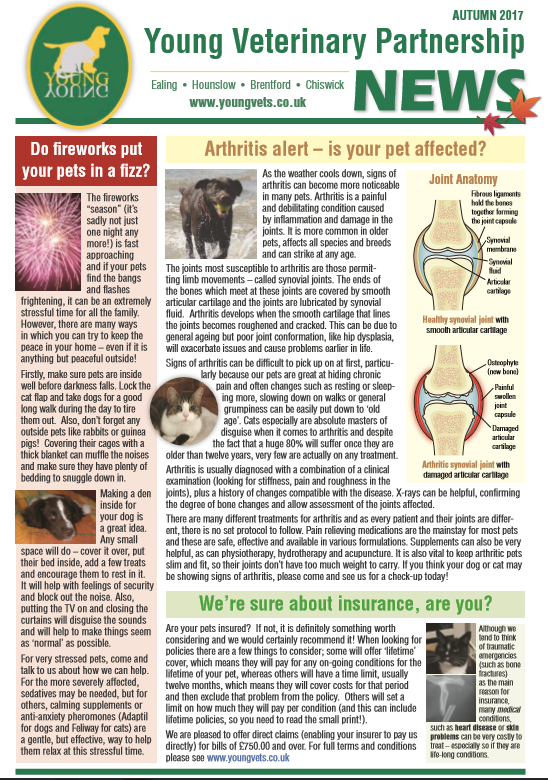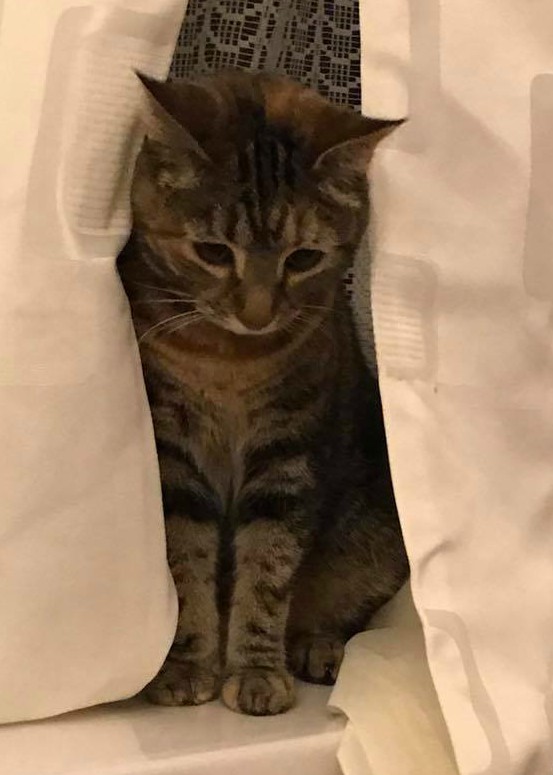Winter weight worries!
Our staff here at Young Vets understand that when the cold winter weather hits, the lure of a cosy sofa and central heating can conspire against us, leaving both pet and owner prone to putting on a few unwanted pounds. This is a problem because while it is all so easy to gain weight, loosing it isn’t nearly so easy! Our Winter Newsletter explains how to monitor your pets weight, looking for a waist line and the problems that obesity can lead to.
Festive alert:
Pieces of string, tinsel and bones from turkeys should be kept well out of reach to avoid an intestinal blockage and the possible need for life saving surgery. Our Winter Newsletter offers advice on how to avoid a Christmas calamity and keep your pet safe during this festive period.
Does your golden oldie slow down when the cold weather hits?
Cold winters can make your pet’s joints stiff and painful. Our Winter Newsletter explains which joints are most susceptible to arthritis, the signs to watch out for and the things you can do to help your pet if they are getting a little stiff in their old age. Ever considered a Doggy Swimming Pool – believe it or not – these places are becoming more and more popular and they are great for burning calories whilst not stressing out sore joints. Contact our friendly team if you think this could be beneficial to your pet!
Have you ever wondered where fleas go for a winter holiday?
Sadly, the answer is – your home! Did you know that once the weather starts to cool this can be the worst time of year for flea infestations. Our Winter Newsletter explains what invites them into your home and what makes it seem like they appear out of nowhere. If you don’t want any extra visitors in your home over the festive period contact our friendly team to get protection for your pet and your home.
Our Winter Newsletter has arrived, it is jam packed with advice to help you and your pet avoid a Christmas calamity over the festive period. If you have a query on anything mentioned give our friendly team a call and they will be able to help you.

